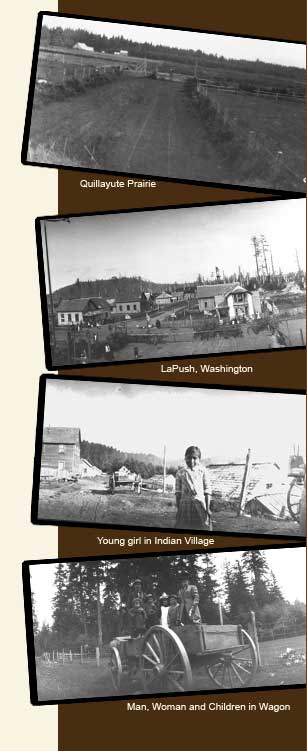

Online exhibits / Fannie Taylor / Journal / Page 4
 | |||||
|
January Sunday 31, 1915 The black paper to make my album for panoramas came in today, cut and put extra pieces on quite a number of leaves. It is going to be quite a job to fix those but it is the only way as albums for no. 4 panoramas are not made any more. February Tuesday 2, 1915Raining. Made up my money order report. Read some. Have my big photo album finished and prints mounted, it is an improvement to having them lay around loose. February Sunday 7, 1915After dinner the subject of getting water on the prairie came up. Charley Hagadorn said his father had dug 100 feet there at the house and only had water when it rained in the well. S.G. [Sam Morse] said that 17 years ago the Halstead place could be purchased for $1600 – 320 acres and the other places accordingly. Just before he died Maxfield offered to sell for $15,000, quite a difference. Fannie recorded in her entry on Saturday February 13, 1915 Six boxes of apples on the mail, never rains but it pours, they will soon go as apples are more popular than oranges. Made three middies today, one of shirting, one khaki, one of krinkle kloth. The piano man and a friend were down to LaPush today; guess they did not sell any pianos. Cold and clear. Have been making out an order for post cards for next summer's trade and find it will take about $70 worth to start the summer. This should be a good year as the road being open to the lake [Crescent] will bring a good many tourists down. In the last week have sent in 5 rolls of film. I took a number of the surf last Monday, as the sea was wonderful. So wonderful that $2,500,000 went down in the Columbia jetty. Just the swells were running half way to the top of Cake Rock. The sea came from almost direct south. Fawcett and [Walter] Ferguson are working on the road survey from the Mora schoolhouse up the river, and intend before finishing to locate the road to the cannery. The people on the river need and should have a good road that a car can travel over. The river was very well in times gone by, but the country is rather well along in years to be still using that primitive way of travel – the canoe. The country schoolteacher is the subject of an article in Educational Foundations. Few of us but what have memories of our country school days, the three windows on each side of the room with the platform for teacher's desk between the doors in the front of the building. The seats along the side built to the wall, a couple of small blackboards and a plain bench for recitations. That bench was always a place of torture to me during my country school days, if I could just get my back to the big boys and girls it was not so bad, but to sit where I had to face them was enough to make all lessons difficult. In the summer when the older pupils were not in attendance, school was the finest place in the world. How far that two miles to the schoolhouse seemed. Distances do not seem so far now, two miles is a joke in this country where distances are so great.
|
Click on images below to view larger version of each with accompanying description. 
|
||||